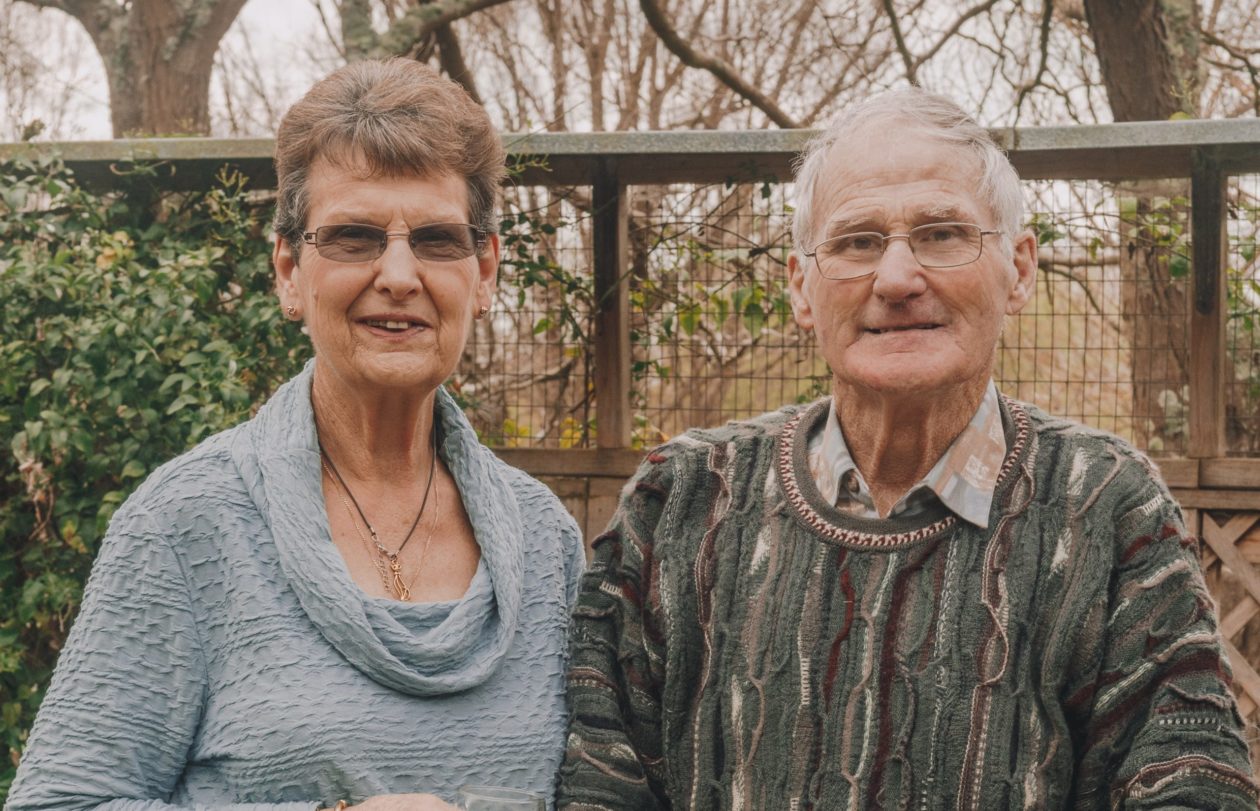Denise’s story

“From my experience, getting that diagnosis and getting to an advanced stage was absolutely horrendous.”
Those words describe the diagnosis journey for Denise Grace and her husband, Neville (a former researcher for agricultural science).
Neville passed away in 2022, but the experience is still one Denise feels strongly about – she shares her story in the hope that others might have their concerns taken more seriously.
A visit to the doctor in 2019 did not bring about the response she expected after significant changes in Neville’s behaviour.
“His diagnosis is ‘oh, it’s just old age catching up and your body slowing down’. I was in absolute despair,” she says.
What followed was a turbulent few years where alongside Neville’s health, Denise was also burdened with other stressors like Covid-19 and selling their whānau lifestyle block of four decades.
“I was coping and keeping the place tidy and doing all that. In the moment none of the family really understood what was going on and there was still no diagnosis – all because at that first appointment and with all my concerns, we were just told it was the body slowing down.”
Finally, after a phone appointment in March 2020 and an assessment at the hospital, Neville was formally diagnosed with Progressive Supranuclear Palsy (PSP) – a condition closely associated with dementia mate wareware. He subsequently attended a day programme at Alzheimers Manawatū a few times a week for several months.
His disease progressed rapidly and he was falling over more and more frequently until in July 2020 he had a bad fall and banged his head cutting it open. He was taken to hospital by ambulance and admitted. While there he was assessed and went straight to residential care for hospital level care.
“All through that time we couldn’t get any help because he didn’t have a diagnosis… The sooner you can get some idea, the sooner you can get an acknowledgement there is a problem. The earlier a diagnosis can be made the better for both the person and their family,” she says.
Denise’s journey is not one experienced in isolation. Alzheimers NZ research This is our story shows while people have different experiences, many struggle to get a diagnosis
“The first one that I went to, he had a look at me and kept saying ‘you’re too young for this, it’s probably something else,” says one participant.
“We did change doctors, initially. We’ve had the same doctor for 30 odd years, and he initially said it was just stress. But [he] wasn’t accepting that so I got us into a new practice,” says another.
Alzheimers NZ Chief Executive Catherine Hall says everybody has the right to timely and accurate diagnosis – in line with the Dementia Mate Wareware Action Plan.
“Diagnosis is a crucial step to knowing that something is wrong and to get access too all the vital community services people and their whānau living with dementia mate wareware need,” she says.
“Current research in Aotearoa New Zealand shows almost half of the people interviewed have no idea they have memory issues so the actual number of people without a diagnosis could be much more significant than we originally thought.
“We appreciate the increasing pressure on health care professionals but urge them take people’s concerns seriously – it could make a world of difference.”
If you or anybody you know needs more support, reach out to your local Alzheimers or dementia organisation.

